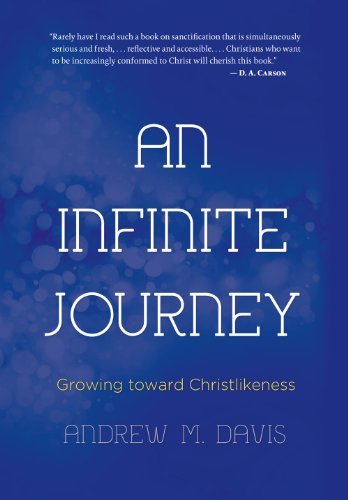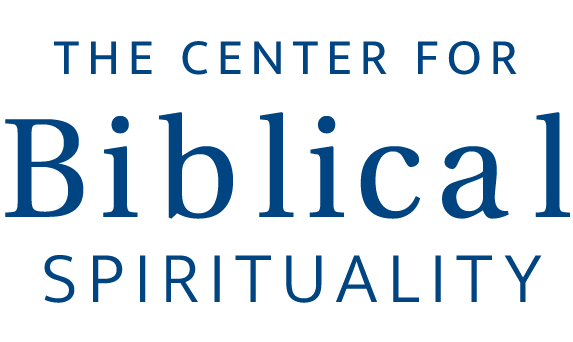What’s the Easiest Way to Memorize Scripture?
Here’s a brief video I did in the helpful “Honest Answers” series by Southern Seminary.
In this one I respond to the question, “What’s the Easiest Way to Memorize Scripture?”
Here’s a brief video I did in the helpful “Honest Answers” series by Southern Seminary.
In this one I respond to the question, “What’s the Easiest Way to Memorize Scripture?”
There may be other Christians more committed to the discipline of Scripture memory than Pastor Andy Davis, but I’ve not met them.
But I do know Andy, and can tell you that he’s the real deal. Not only is he the most diligent memorizer of Scripture I’ve ever known, he’s also a genuinely godly man, a devoted husband (to Christine) and father (of five), a careful expositor of Scripture, and a faithful pastor. Since his graduation with a Ph,D. in church history from The Southern Baptist Theological Seminary in 1998, he has been pastor of First Baptist Church of Durham, NC. Before that, Andy served as an SBC International Mission Board church planter in Japan.
In 2014, Baptist Press wrote a story about Andy, who at that time had memorized an astounding 35 books of the Bible. Since then he has added another seven.
A few days ago I interviewed Andy by phone in one of my seminary classes. I thought that the readers of this blog might profit from some of the highlights of that conversation.
Why you shouldn’t be intimidated
First of all, before you think Andy is blessed with a superpower memory and uses it to internalize Scripture to a degree you could not, realize that he does not permanently retain all he has memorized. He doesn’t have complete recollection of all 42 books ready on his lips. Exactly 100 days after he has memorized a book of the Bible word-perfectly, his retention of it begins to erode.
That’s because following his complete mental mastery of a book, he recites it each day for 100 days, then moves on to another book. Once he stops reviewing a book, his ability to recall every chapter and verse of it starts to fade.
Of course, he doesn’t forget everything. The months he invested saturating his mind with the book results in a lasting familiarity with the flow and message of the text. Sections of it remain indelibly impressed for immediate retrieval.
So while he retains less and less over time of the exact wording of the books he no longer reviews, his overall grasp of those books (and their grip on him) isn’t diminished. The lifetime benefits of books memorized years ago is unquestioned. Still, it’s encouraging to those of us who are tempted to think that Andy’s ability to memorize is superior to our own to know that, like everyone else, he also doesn’t remember what he doesn’t review.
Why you can memorize like this
Despite that concession, many believers would still be tempted to believe they couldn’t memorize entire books of the Bible. They imagine the little letter of Third John would be as impossible to memorize as the Gospel of John.
Andy says that’s not true. So what’s his secret? It’s simple: repetition over time.
In other words, you keep repeating a book, one verse at a time, over and over until you have it.
Here’s how
Let’s say you plan to memorize the book of Ephesians. On day one you read Ephesians 1:1 aloud ten times. Then you cover it and recite it ten times, adding the chapter number and verse number, saying “1:1.” That’s it for day one.
On day two you begin the principle of “yesterday’s verse first.” So you review verse one, saying it aloud ten times—looking at the verse as needed—and always saying the verse number. Then you go to verse two, reading it aloud ten times, then saying it from memory ten times, each time starting with “1:2.” You’re done for day two.
On day three you review yesterday’s verse first, reciting Ephesians 1:2 ten times, looking at your Bible as necessary. Then you begin the daily practice of reviewing all your verses, so you say Ephesians 1:1-2 aloud ten times, including the verse number for each verse. Now you learn your new verse, using the same method as before: saying verse three aloud ten times and quoting it ten times. That’s all for day three.
By day four you’ve learned the process and have momentum. As before, you review yesterday’s verse first, then all previous verses, and then learn your new verse.
Just repetition over time
There’s no magic here. Just repetition over time. Once you’ve learned the entire book, you stop learning new verses and repeat the entire book daily for one hundred days. Then you start a new book.
Andy says he never spends more than fifteen minutes a day working on Scripture memory. Even during his 100-day review of an entire book, he can recite most of them in fifteen minutes or less. For books that take more than fifteen minutes to say aloud, he sometimes recites only part of the book.
Want more?
Dr. Davis wrote a helpful booklet on An Approach to Extended Memorization of Scripture. In it he explains how he began memorizing Scripture, and provides more detailed instructions on the daily process of memorizing entire books.
A Kindle edition is available for 99 cents on Amazon, or you can download a PDF of it (in English, Japanese, or Spanish) for free here on the First Baptist Church website.
More teaching by Dr. Davis on Scripture memory, including a summary of the Bible’s teaching on memorizing Scripture, the benefits of doing so, why he believes it’s best to memorize entire books instead of isolated verses, and answers to the most common excuses for not memorizing Scripture is available here on the church’s website.
 I’d also recommend his book, An Infinite Journey: Growing Toward Christlikeness.
I’d also recommend his book, An Infinite Journey: Growing Toward Christlikeness.
Besides the Bible, it would be difficult to find any other single resource with more biblically sound, theologically rich, pastorally helpful, and practical insight about Christian growth than this book.
I’d recommend it to anyone on the “infinite journey” toward Christlikeness.
What about it?
James 1:25 says this about coming to God’s Word: “the one who looks into the perfect law, the law of liberty, and perseveres, being no hearer who forgets but a doer who acts, he will be blessed in his doing.” The one who memorizes Scripture is the one most determined not to be one “who forgets.” Which will you be?
Photo from Baptist Press
I am grateful to my friend Tim Challies for posting a summary of a section on Scripture memory from my
Spiritual Disciplines for the Christian Life.
Don Whitney would be happy to consider speaking at your church or conference to teach your church the importance of Biblical spirituality.
This site uses cookies. By continuing to browse the site, you are agreeing to our use of cookies.
Accept settingsHide notification onlySettingsWe may request cookies to be set on your device. We use cookies to let us know when you visit our websites, how you interact with us, to enrich your user experience, and to customize your relationship with our website.
Click on the different category headings to find out more. You can also change some of your preferences. Note that blocking some types of cookies may impact your experience on our websites and the services we are able to offer.
These cookies are strictly necessary to provide you with services available through our website and to use some of its features.
Because these cookies are strictly necessary to deliver the website, refusing them will have impact how our site functions. You always can block or delete cookies by changing your browser settings and force blocking all cookies on this website. But this will always prompt you to accept/refuse cookies when revisiting our site.
We fully respect if you want to refuse cookies but to avoid asking you again and again kindly allow us to store a cookie for that. You are free to opt out any time or opt in for other cookies to get a better experience. If you refuse cookies we will remove all set cookies in our domain.
We provide you with a list of stored cookies on your computer in our domain so you can check what we stored. Due to security reasons we are not able to show or modify cookies from other domains. You can check these in your browser security settings.
We also use different external services like Google Webfonts, Google Maps, and external Video providers. Since these providers may collect personal data like your IP address we allow you to block them here. Please be aware that this might heavily reduce the functionality and appearance of our site. Changes will take effect once you reload the page.
Google Webfont Settings:
Google Map Settings:
Google reCaptcha Settings:
Vimeo and Youtube video embeds:
You can read about our cookies and privacy settings in detail on our Privacy Policy Page.
Privacy Policy